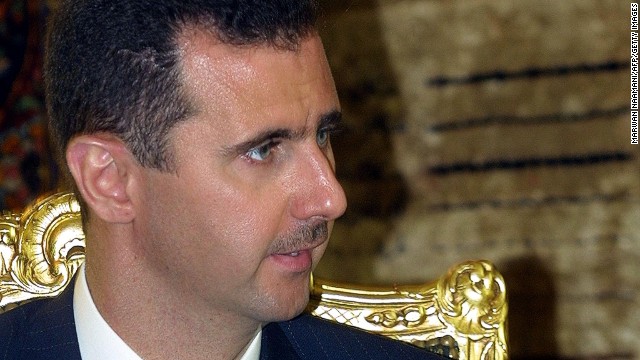How Bashar al-Assad took Syria to the brink — and beyond
< < Go Back
 Growing up as a child in Damascus, it was evident that the current president of Syria, Bashar al-Assad, was first perceived by majority of Syrian people as a shy, reserved, introverted, weak, and hesitant child.
Growing up as a child in Damascus, it was evident that the current president of Syria, Bashar al-Assad, was first perceived by majority of Syrian people as a shy, reserved, introverted, weak, and hesitant child.
He seemed to inherit none of his father’s (Hafez al-Assad) or his brothers’ (Maher and Bassel al-Assad) intelligence, strength, and leadership skills.
Even Bashar’s physical appearance — his tall and thin frame — added to his image as a frail person in the eyes of the majority of Syrian people.
But, more fundamentally, the invisible hand of history would soon sweep away these perceptions and prove the majority wrong.
How did the blue-eyed, tall, Western-educated ophthalmologist and reserved al-Assad, the one who was trained as a doctor to diagnose and eradicate diseases, so misgovern the domestic, regional, geopolitical and socio-economic affairs of Syria?
How did the soft-spoken, withdrawn al-Assad, who favors a thin mustache, transcend into one of the most despised political figures of his generation?
Bashar’s destiny changed dramatically when he received a phone call from his father Hafez al-Assad in 1994. While studying at the Western Eye Hospital in England to be a professional ophthalmologist … he was told to return to Damascus. The news of his older brother, Bassel’s death in a car accident had reached Bashar and changed the direction of his life.
Hafez al-Assad and his old guard advisors trained Bashar for several years in military and political affairs, along with Socialist Ba’ath and secular ideals. The military and ideological training of the al-Assads’ old guard altered Bashar.
However, Bashar al-Assad seems to have a distinct vision for Syria, other than the Socialist Ba’ath agenda of his father’s old guard. While he endorsed the old guard’s use of hard power and mass repression, the lifestyle and wealth of the West still occupied al-Assad’s mind when he assumed power.
In his inaugural speech, Bashar al-Assad emphasized that it was time to begin modernizing Syria. He stated: “I shall try my very best to lead our country towards a future that fulfils the hopes and legitimate ambitions of our people.”
While Hafez al-Assad and the old guard favored the more fundamentally socialist agenda of the Ba’ath party …
Bashar al-Assad miscalculated his policy changes though, as economic liberalization requires parallel political liberations.
… he resisted political liberations, equality, and redistribution of the wealth. He also increased the political repressions against political dissidents and human rights activists. Bashar al-Assad also allowed Iran to enjoy greater influence in Syria.
When the popular uprising erupted, Bashar focused on retaining the support of three significant social and political groups: the business class, the minorities (Alawite, Christians, Shiite, Druze, etc), and his hard power apparatuses (the army, Shabiha, snipers, intelligence, police, etc).
Additionally, Bashar responded to the uprising with mixed reactions, on one hand offering promises and on the other enforcing mass repression.
Bashar has worked to pass off, to the international community, the idea that there is no better or more efficient alternative to his rule.
More From CNN:



